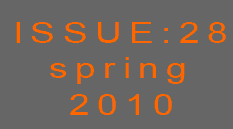
Why I did not switch the lights off for Earth Hour

by Andrew Teller
Earth Hour is a global event promoted by the World Wildlife Fund, also known as WWF. On the last Saturday of March of each year (in 2010, it was the 27th), people the world over are invited to switch their lights off for one hour starting at 8:30 p.m. The move is intended to raise awareness in the population of the environmental problems threatening our planet and to make it noticeable by everybody. As far as I can tell, the event went actually totally unnoticed: no sudden fall into darkness struck me at 8:30 on that day nor were there any reports of the event in the news of my usual TV channel the following day. Let me explain why I consider this a good thing.
Far from me the idea of belittling the intention of expressing one’s care for the environment or of convincing others that they should do the same. But is it not just a question of deciding what to do; how to do it also matters and this is where I am in disagreement with the above-mentioned scheme. Let us first observe that we are dealing here with an instance of symbolic behaviour, i.e. of an action undertaken for the sole purpose of expressing feelings about a given issue; this is why it does not matter if the action chosen has little beneficial impact on the point at issue or is even completely ineffectual. But tolerating a course of action that has actually adverse consequences undermines the whole undertaking: how could anybody advocate a cause and, in order to show it, engage in an activity that ultimately goes against it? This is nevertheless what has happened with the choice of coordinated light-switching. The people who advocate it want to induce energy-saving habits but are also those who advocate widespread use of interruptible energies such as wind and solar, who talk about peak-shaving and demand management. These measures both require a modicum of understanding of how the electricity network fulfils its mission and hence minimal respect for it. By promoting coordinated actions on it, the advocates of Earth Hour display neither. Every distribution network has been sized on the assumption that not all users will tap it at the same time. Furthermore, electricity networks do not like sudden peaks or troughs in demand. Since electricity cannot be stored to make up for imbalances between supply and demand, the latter must be met quasi instantaneously with corresponding changes in generating capacity. There is no reason to test the system beyond what is actually unavoidable; this would be even truer if we were to switch from the present, centralised electricity networks fed by large power stations to much leaner, distributed ones fed by small, interruptible units. Hence my basic criticism of the Earth Hour scheme: the way chosen to express one’s commitment to energy savings induces habits that go against the solution that would be logically entailed by such concern.
Unfortunately, green-leaning organisations seem to be used to indulging in such oversimplifications. The advert produced by the Environment Directorate General of the European Commission for its 2005 Green Week provides another example. It was used on numerous occasions and is shown below on the front cover of a notepad. Here again we are in the domain of symbols. The idea that we are supposed to combat global warming is represented by a child clutching a thermometer with the aim – obviously doomed to failure – of stemming the rise of the liquid in the tube. The intent was to reinforce graphically the recommendation of getting “to grips with climate change”. Unfortunately, playing on the word “grip” in this way suggests a particularly ineffectual way of tackling global warming: first, it is the absurd to expect to be able to stop the expansion of a liquid by mechanical means; second, the picture also overlooks the fact that the temperature of the said liquid is actually bound to rise due to the heat of the hand holding the thermometer.
 |
The lesson that I draw from the above considerations is the following: the choice of the ineffectual symbolic devices used to express justified concern for the environment betrays a completely uncritical attitude towards the problem. The choice is made on the basis of the most superficial agreement with the goal pursued. It is a sure indicator of an ideologically motivated attitude, not of a determination to find rational, i.e. effective answers to the issue. This is no to imply that everything in life must comply with the requirements of cold rationality and disregard all other considerations. But I strongly
|
believe that, when venturing outside the kingdom of rationality, one should not stray in the realm of anti-rationality.
|

